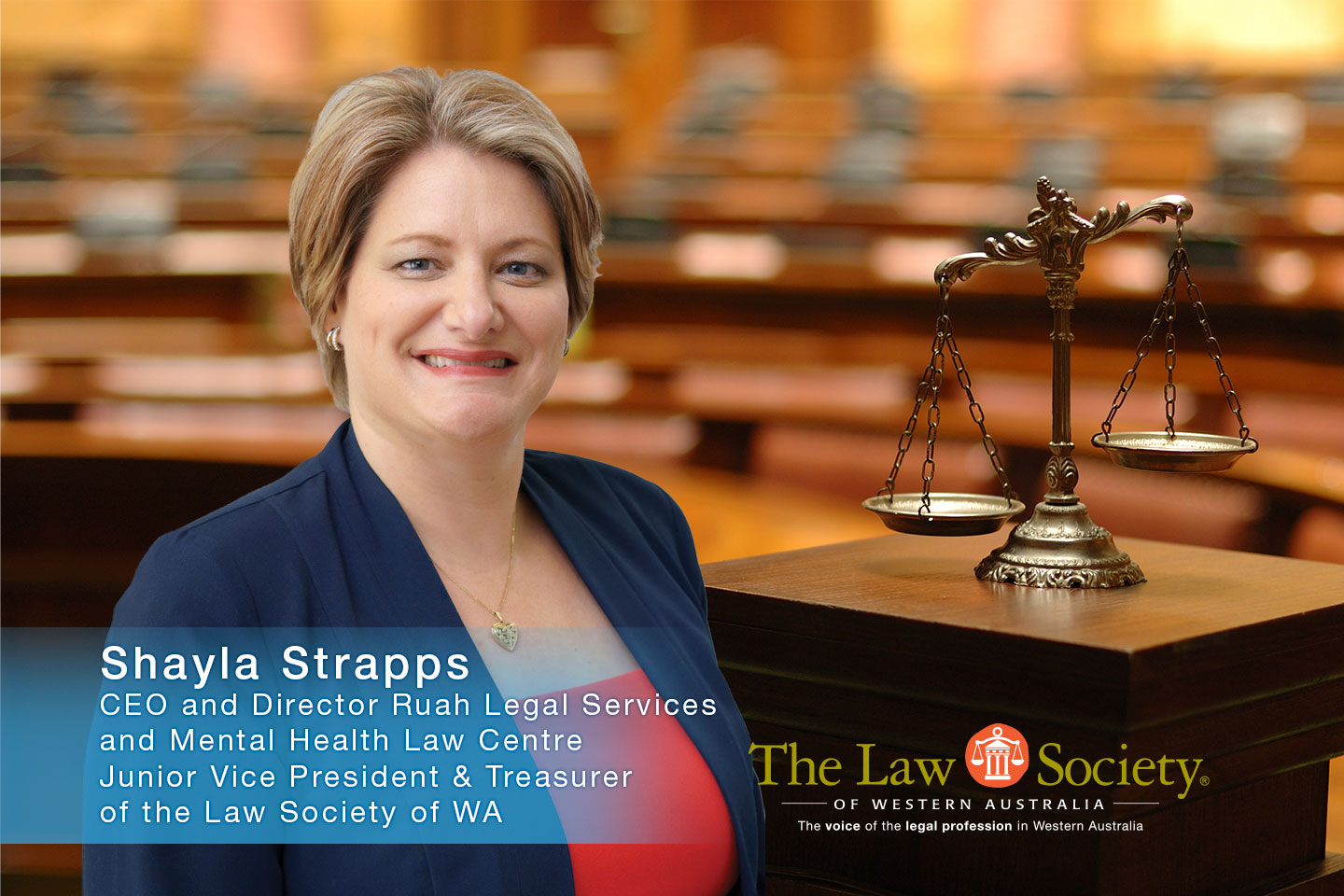

When it comes to access to justice, we short-change the most vulnerable people in our community.
Everyone is vulnerable in the legal system – the stakes are high, the system is complex and the law can be very technical.
But we allow some people to be more vulnerable than others.
We short-change people who are already disadvantaged by virtue of a mental illness or their experience of family violence by serving them up ‘cheap justice’ – brief advice, referrals to other parts of the system maze, and non-legal advocacy.
Is it any wonder the outcomes for vulnerable people mean injustice is heaped upon injustice? It’s certainly not equitable access to justice. It’s not even fair access to justice.
Imagine yourself in the midst of a big business deal that goes wrong. The stakes are high with potentially catastrophic impacts. It’s likely your first call is to a lawyer. There will be a budget, maybe up to $10,000 a day for an out-of-town advocate, or $600 an hour for a Perth-based solicitor. The budget is considered of course, but pales into insignificance against the need to achieve the best-possible business outcome.
There is enormous stress, but it eases when you get yourself a good lawyer. They’ll sort it out. They’ll take the reins. They’ll navigate the system for you.
No prudent business operator would risk navigating the legal system without highly trained support. Without a lawyer. But that’s what we ask vulnerable people to do – when the stakes are even higher. Their children. Their liberty. Their safety.
Imagine now that you are a person escaping family violence or living with a serious mental illness. You don’t have the financial or mental resources to call a lawyer. When you do, assuming you can find a service with some capacity, you receive some brief advice about what you can do to help yourself. That’s what the service’s scant resources can provide – and they know it is inadequate.
The woman still traumatised by family violence is sent to the Family Court to make arrangements for children; the Magistrates Court to seek a Violence Restraining Order and perhaps the Children’s Court to sort out Care and Protection matters (because their children have been removed from the risk of the same family violence their mother is escaping). It’s the trifecta. We ask them to navigate three different systems and jurisdictions, while they’re highly traumatised, likely in fear for their life, and without any resources, sometimes even without a home or a roof over their head. And all without a lawyer.
If you can’t get a lawyer, you might be able to find an advocate. Advocates are not legally trained people, but they walk beside you, they help you to voice your concerns, to explain them, and they help you to try to be heard over the deafening systems and barriers. They are a support, but they do not understand the legal drivers and the pathway to resolution. They cannot apply a lifetime of training and skill in the law, legal systems and the art of persuasion to help you find justice.
Brief advice, information, referrals and advocacy are cheap justice. Justice which is not funded properly. If we interpret it generously, it can be defined as justice that attempts to best use public resources pragmatically to empower people to manage their own affairs. At its worst, it can be described as an abrogation of the responsibility of Government to provide mechanisms to keep its citizens safe, and to provide a justice system for all.
Vulnerable people need more than just a voice, some quick legal advice and referrals. In the same way that you wouldn’t expect an allied health practitioner to take the place of a doctor in a hospital, we shouldn’t require – and fund – anything less than a qualified lawyer for vulnerable people in our courts and tribunals. They deserve qualified legal help from beginning to end, to appear for them in Court, to manage all the paperwork, to negotiate and advocate for them. Anything else is not justice. It’s unjust.
We use the term ‘equal access to justice’. That is a fallacy. There is no equal access to justice in Australia. But shouldn’t we at least aspire to providing vulnerable people with fair access to justice? It may never be equal if the measure is powerful corporates or wealthy individuals who can pay upwards of $10,000 a day for their top-of-town advocates, but it should at least be fair access.
Lawyers understand this need innately. As former Law Council President Fiona McLeod SC has previously noted, the pro bono work undertaken by lawyers is a unique aspect of our profession, and there is simply no other profession with such an established culture of helping those in need. That’s how much the profession believes in fair access to justice.
Still, the unmet need is enormous. The funding shortfall is enormous.
Law Access last year reported that “there is almost no funded legal assistance provided for representation with family law property settlements which has flow-on effects for housing security, employment and education. Nor is there legal assistance available for many applicants requiring legal advice and representation at judicial review of administrative decisions in the Federal Circuit Court.”
Community legal centres including those specialising in supporting people with mental illness or escaping family violence will tell you the unmet need, even in those seriously disadvantaged groups who benefit from some funding, is still enormous.
If the theme of this Law Week, Access to Justice, is to mean anything, the community must support increased funding for true advocacy for vulnerable and disadvantaged Western Australians.







